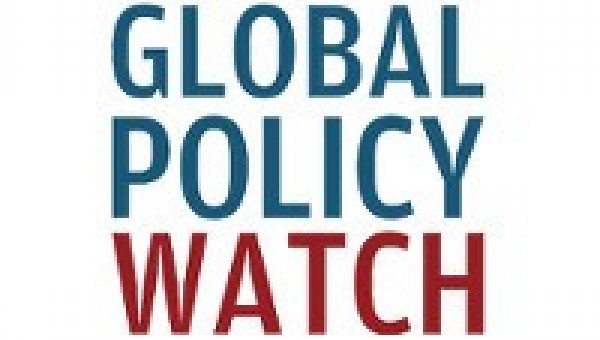News

By Sarah Dayringer and Karen Judd
The United Nations Secretary-General Antonio Guterres challenged participants at the 61st Commission on the Status of Women (CSW 61) in March 2017: “Do not let us at the UN off the hook. Keep our feet to the fire.” Many civil society organizations (CSOs) are doing just that – calling for more from the CSW.
At CSW 61, Dalia Leinarte, Chair of the Committee on the Elimination of Discrimination against Women (CEDAW) said, “[l]inking the [CEDAW] Convention to the 2030 Agenda [for Sustainable Development] has great potential in advancing women’s economic empowerment and enables the Committee to support States in implementing the [Sustainable Development Goals] SDGs”.
However, nothing in the 2030 Agenda (A/RES/70/1) prevents foreign investors from suing governments for implementing policies designed to help achieve the SDGs, particularly those on health, energy and the environment that may limit potential corporate profitability. A 2016 report from Development Alternatives with Women for a New Era (DAWN), concludes that “[a] stronger commitment by governments is needed to ensure private sector compliance with human rights, including women’s rights”.
This message resonated at CSW 61 as the discussion on how to finance gender equality turned toward Member State and non-State partnerships to “fill the gaps”. Many CSOs pointed out that efforts to mobilize resources for gender equality – and more broadly the SDGs – should not be at the cost of democratic governance. Women’s rights and economic empowerment depend on taking back and protecting the public sector, which is increasingly assailed by privatization and corporate influence.
In 2016, the International Covenant on Economic, Social and Cultural Rights (ICESCR) General Comment on State Obligations under the ICESCR in the Context of Business Activities issued in October 2016, raised similar concerns, noting that “major development projects have increasingly involved private investments, often in the form of public-private partnerships (PPPs) between state agencies and foreign private investors”. The General Comment called on Member States to “prevent and address the adverse impacts of business activities on human rights”.
A 2016 Public Services International report concludes: “There is no evidence that the private sector is more efficient than the public sector, in fact, experience as well as scholarly economic studies have shown the public sector to be as efficient or more so than the private sector.” In a 2016 working paper from the UN Department of Economic and Social Affairs (UN DESA) on PPPs reiterates the risks involved for governments:
Overall, analyses by both the IMF and World Bank have expressed concerns regarding perverse incentives on the part of governments to treat [Public Private Partnerships] PPP contingent liabilities as “off balance sheet”, which in turn undermines sound fiscal management.” Referencing a 2015 study, the working paper concluded: “the historical experience of several countries in the developed and developing world shows that PPPs can pose a huge financial risk to the public sector.
Speaking at the CSW, women’s organizations and gender equality advocates emphasized the importance of public finance, including fairer and more effective taxation. Addressing this concern, the CSW 61 Agreed Conclusions include the need for “progressive tax systems, improved tax policy, more efficient tax collection and increased priority on gender equality and the empowerment of women in official development assistance”. Kate Lappin of the Asia Pacific Forum on Women, Law and Development spurred advocacy efforts at CSW 61 for the proposed global tax body raised in the Financing for Development Forum, calling for it to be “pushed in the [CSW 61] declaration, to evidence its link with the advancement of women’s rights”.
The call for an independent global tax body in connection with CSW, along with the determination of women’s groups and Member States to question an uncritical reliance on public-private partnerships to advance women’s rights is significant. Does it perhaps signal a new willingness of CSW to take on constraints to women’s rights and empowerment beyond the national level?
This has opened a moment for bold political leadership to champion a course correction for the UN development system, equal to the demands of the 2030 Agenda. New proposals and recommendations should aim high, towards shaping a system-wide framework. They should be backed by a persuasive call for Member States to comprehensively act on them. — Barbara Adams
